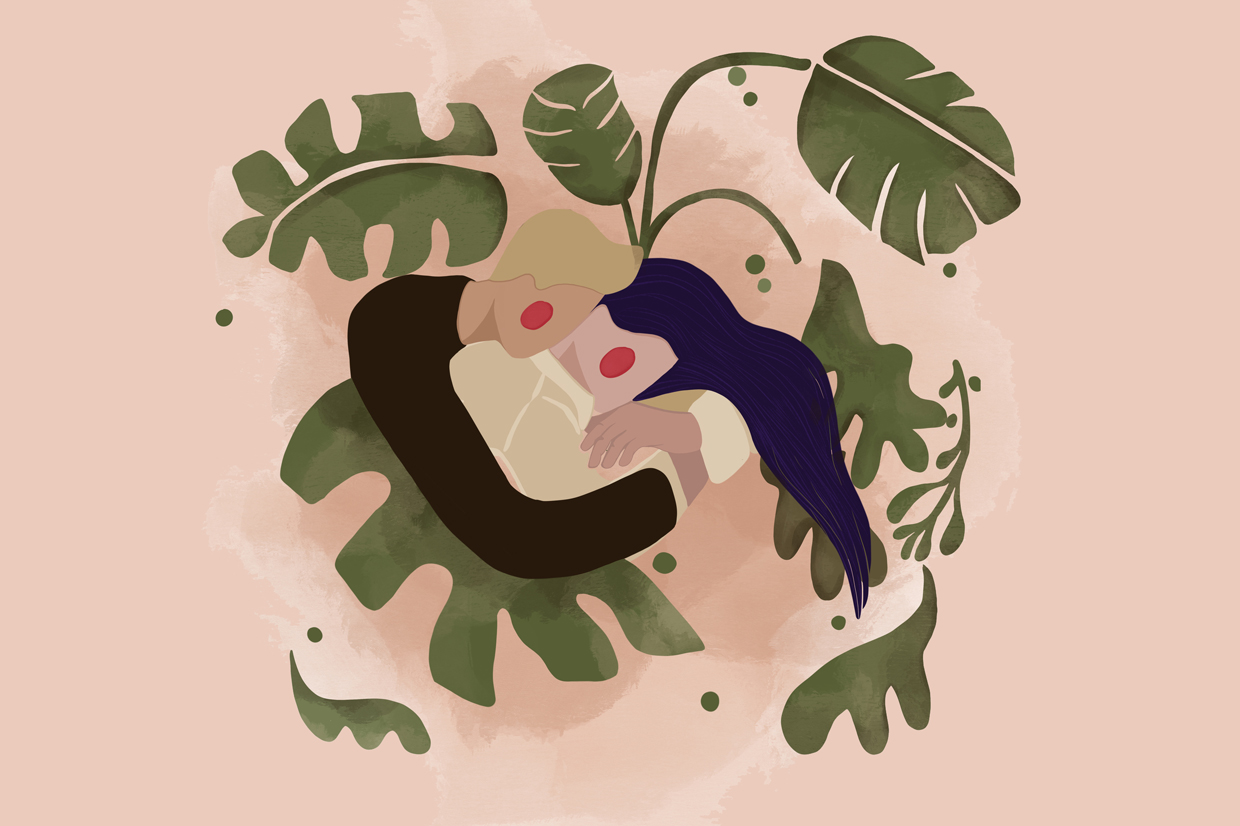“We feel so helpless when someone we care about is in pain and we long to help,” says Southlake, TX-based therapist Elizabeth Kupferman, author of The Irreverent Grief Guide. “A sympathy gift is a wonderful way to show through action instead of words that you acknowledge and honor their loss. And it’s something we can do to feel like we’re part of the solution without trying to fix their grief.”

But knowing what to get can be tricky — it’s a delicate situation. One widow I spoke with said, “Just say no to flowers.” Kupferman explains: “I’ve heard many grievers say they don’t like receiving plants or flowers because they have to watch something else die.” And gifting something that requires work — watering, trimming — is just one more task you don’t want to burden someone with. So, what are ways to show you care?
Take Something Off Their Plate
Here is a list of things that I can do or get for you. Are there any things in this list that would be helpful to you right now?
“Take into consideration that a grieving person’s day-to-day energy and functioning will go down,” says Kupferman. So what can you do to ease their load? Food is an obvious choice. Meals for the freezer, baking for the pantry, fresh produce sent, or Instacart gift cards that can be used to buy what they need and have it delivered can be a God-send. “We tend to eat a lot of junk food while grieving,” says Kupferman, so healthy food is a great idea to keep up energy levels. (Search for organic produce or local farm delivery in the recipient’s area.)
Think of some things the person who died did that you could help with, says Kupferman. “If the spouse who died was the one who mowed the lawn, you [or a group of friends, co-workers or family] could hire a lawn service for a few months.” (Search angi.com to find a reputable gardener in the area.)
If you’re unsure how to be helpful, just ask. “I mention in my book that grievers have a hard time reaching out to take you up on ‘let me know if you need anything,’ so I might say, ‘Here is a list of things that I can do or get for you. Are there any things in this list that would be helpful to you right now?’”
For Parents and Kids
Again, meals can be a life-saver for newly-single parents that are still expected to provide three meals a day for small people. You could even offer to pack children’s lunches, if appropriate.
Kupferman suggests puzzles, games, and art supplies for children as well — it gives them something new to do and think about and gives the grieving parent a brief respite. Remember, “Kids are grieving too and they could use kindness and attention.” A kids’ “Bath Box” is a way to introduce a bit of self-care for children. Or you might gift a journal and cool pen to encourage the child to write down his or her thoughts, and also offer that you’re there to talk or listen any time. Or take the child to the movies, the swimming pool, or an event in the area.
One of the most valuable things you can give to a child is information about the person who died that they wouldn’t know otherwise. Write down memories you have of his or her loved one, along with photos. Children will cherish this for years to come and find comfort in knowing more about the person they lost.
Cozy Comfort and Pampering
A big, warm hug is what most of us would think to do if we wanted to comfort someone. So what are physical gifts that could offer the same thing when you can’t physically wrap your arms around someone? A weighted blanket, candles in a hand-blown candle holder, cozy socks, and calming tea are good places to start.
Practicing self-love is important and many grievers need to be reminded of this. Stress hormones released during the grieving process can cause back and joint pain, headaches, and stiffness. Think CBD bath salts or a milk bath to encourage a long soak. Or a gift certificate for a massage.
Grief can also take a toll on the skin. The endocrine and sympathetic nervous systems can make skin appear dull and if you’ve ever had a good cry-a-thon, you know how dehydrated your face can feel. Gifting a skincare pack (Sunday Riley Vitamin C best-seller is the perfect one for this situation) will make the griever feel like it’s okay to take care of him or herself, without too much effort. Or a set of beautiful little hand creams will remind him or her to connect with the idea of soothing oneself.
Don’t Spend a Dime

“Sympathy gifts don’t have to cost anything,” reminds Kupferman. “Fold laundry, clean the kitchen, organize, help with thank-you notes, take things to Goodwill for them,” and other errands. It can be helpful for children to keep up with routines, so if you can drive kids to soccer practice or home from school, offer your chauffeur services. And remember that a thoughtful, caring note can mean the world to someone — just knowing that you’re thinking of them and there to listen or provide company as needed.
Think of an Homage
Along those same lines, think of an homage to the person who passed that you can give to the person grieving. Maybe it’s a meal, recipe, or bottle of wine that you shared with the person. Write a note about the significance. Maybe the deceased loved caviar — gift caviar, spoons, and a note about the memory. Or maybe it’s a gift card to a cafe that you and the person used to go to regularly: “Your sister and I used to meet here on Saturday mornings for a run and a coffee afterward,” for example. Maybe the person walked along a certain path regularly and you could crowdsource to put a bench there or do some plantings.
Forgetfulness is Real
Difficulty concentrating, forgetfulness, and fatigue are common in the first six months of grieving, says Kupferman, who suggests gifting a Tile to track items, “Because it accounts for the fact that you WILL lose your keys or phone or remote.” Not only is it practical, but it also acknowledges to the griever that this forgetfulness is appropriate and acceptable.
Come Back Later

“Everyone always shows up in the beginning,” says Kupferman. Come back at three and six months. “By then, social support goes away, but a sympathy gift at this time would be very impactful because it shows that you know it’s still hard and that you haven’t forgotten them or their person or their grief.”
We only recommend products we have independently researched, tested, and loved. If you purchase a product found through our links, Sunday Edit may earn an affiliate commission.







